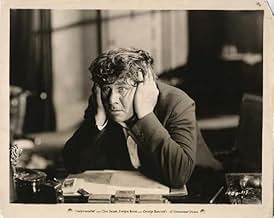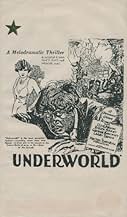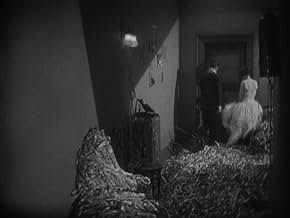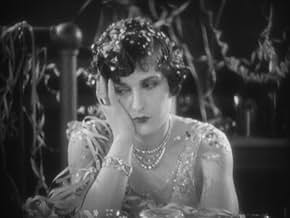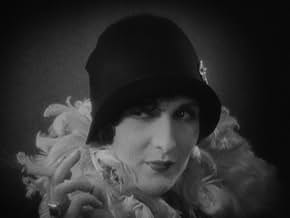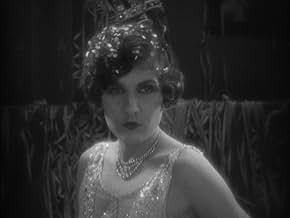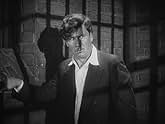VALUTAZIONE IMDb
7,5/10
3743
LA TUA VALUTAZIONE
Aggiungi una trama nella tua linguaBoisterous gangster kingpin Bull Weed rehabilitates his former lawyer from his alcoholic haze, but complications arise when he falls for Weed's girlfriend.Boisterous gangster kingpin Bull Weed rehabilitates his former lawyer from his alcoholic haze, but complications arise when he falls for Weed's girlfriend.Boisterous gangster kingpin Bull Weed rehabilitates his former lawyer from his alcoholic haze, but complications arise when he falls for Weed's girlfriend.
- Regia
- Sceneggiatura
- Star
- Vincitore di 1 Oscar
- 5 vittorie totali
Alfred Allen
- Judge
- (non citato nei titoli originali)
Shep Houghton
- Street Kid
- (non citato nei titoli originali)
Andy MacLennan
- One of Laughing Faces at the Ball
- (non citato nei titoli originali)
Ida May
- Laughing Woman at the Ball
- (non citato nei titoli originali)
Karl Morse
- 'High Collar' Sam
- (non citato nei titoli originali)
Bob Reeves
- Detective at Railroad Station
- (non citato nei titoli originali)
Julian Rivero
- One of Buck's Henchmen
- (non citato nei titoli originali)
Recensioni in evidenza
Underworld (1927)
A lot of people avoid silent films at all costs, and I understand that totally. Many of these films are stiff, and the plots are either sentimental or obvious.
But there are many reasons to watch a good, or great, silent film. Sometimes the acting, whatever its expressive style, is really wonderful. Often the photography and editing is really terrific and sophisticated. And the stories can be fast, fresh, and even pertinent.
And finally, the silent films easiest for the uninitiated to approach are at the very end of the silent era. That would be 1927. See Joan Crawford in The Unknown for the bizarre, or Murnau's Sunrise for eloquence, or consider this film, the first major film by the soon to be legendary Josef von Sternberg. The only thing that might put off some people is the exaggerated expressions in one of the three main characters, Bull Weed. But go with that flow and you'll see not only some more subtle acting, but a sweet, violent, complex plot interweave in just an hour or so (81 minutes, though there is an 87 minute version out there if you can find it, Netflix doesn't have it). The Criterion disc version is really clean (another reason to consider this as an intro silent films, since it isn't broken up or scratched to death).
"Underworld" is filmed with visual complexity even though it lacks some of the virtuosic moving camera of Murnau. The sets are simple but convincing, and the shift in attention to the gangster side of the story, complete with guns and molls and the precursors (or pre-precursors) of film noir, is gripping. It's not as intense as the heyday of gangster films just four or five years later, but it has if anything more emotional sophistication. The story was written by the legendary Ben Hecht, which might explain some of its success.
Von Sternberg you say? Well, he was a master at creating aura, and between him and Dietrich a whole new level of starmaking savvy was born. This, as a first film, and as a last minute replacement, was expected to flop, and was released in a single New York theater. Word spread, however, and it became a hit. You can see why. Great stuff.
A lot of people avoid silent films at all costs, and I understand that totally. Many of these films are stiff, and the plots are either sentimental or obvious.
But there are many reasons to watch a good, or great, silent film. Sometimes the acting, whatever its expressive style, is really wonderful. Often the photography and editing is really terrific and sophisticated. And the stories can be fast, fresh, and even pertinent.
And finally, the silent films easiest for the uninitiated to approach are at the very end of the silent era. That would be 1927. See Joan Crawford in The Unknown for the bizarre, or Murnau's Sunrise for eloquence, or consider this film, the first major film by the soon to be legendary Josef von Sternberg. The only thing that might put off some people is the exaggerated expressions in one of the three main characters, Bull Weed. But go with that flow and you'll see not only some more subtle acting, but a sweet, violent, complex plot interweave in just an hour or so (81 minutes, though there is an 87 minute version out there if you can find it, Netflix doesn't have it). The Criterion disc version is really clean (another reason to consider this as an intro silent films, since it isn't broken up or scratched to death).
"Underworld" is filmed with visual complexity even though it lacks some of the virtuosic moving camera of Murnau. The sets are simple but convincing, and the shift in attention to the gangster side of the story, complete with guns and molls and the precursors (or pre-precursors) of film noir, is gripping. It's not as intense as the heyday of gangster films just four or five years later, but it has if anything more emotional sophistication. The story was written by the legendary Ben Hecht, which might explain some of its success.
Von Sternberg you say? Well, he was a master at creating aura, and between him and Dietrich a whole new level of starmaking savvy was born. This, as a first film, and as a last minute replacement, was expected to flop, and was released in a single New York theater. Word spread, however, and it became a hit. You can see why. Great stuff.
Bull Weed is a boisterous gangster bank robber. His girlfriend is the flashy Feathers McCoy. His rival is Buck Mulligan. Wensel is a vagrant but he's no snitch. He's a Rolls Royce of silence. Bull gives Rolls Royce a thousand bucks and makes him a partner in crime. Using Rolls Royce's brains, Bull becomes even more successful. At a wild party, Buck attacks Feathers and an angry drunken Bull kills him. Bull is sent to prison. Feathers convinces Rolls Royce to run away with her but she changes her mind to break him out of prison.
This is a great pre-Depression era gangster movie. It has the classic gangster style and characters. It's a silent movie that lays out the genre that would explode a few years later. This is one in a line of developments in the gangster genre.
This is a great pre-Depression era gangster movie. It has the classic gangster style and characters. It's a silent movie that lays out the genre that would explode a few years later. This is one in a line of developments in the gangster genre.
In a way, I suppose this film simply managed to push all the right buttons so far as I was concerned. The basic theme of conflicting love and loyalty is one that has always called to my heart, and the central trio of characters happen to tap into stereotypes of instant appeal: gentle, honourable intellectual - sharp-witted and independent beauty - and brash, brave brute of a bully, as intemperate in his passions as in his lack of taste, and yet not wholly without merit.
But while the initial premise may benefit from join-the-dots attraction, it is the performances and execution of the film that give it its power. All three principals do an outstanding job. Clive Brooks, as the educated man brought low by drink and redeemed by the casual generosity of a gangster, makes use of every shading of expression in a sensitive face, conveying more with fewer words in one glance than anyone else in the cast. His scenes with 'Feathers' are a tour-de-force. Despite his reticence, it's easy to credit that he is not only the most intelligent but - with the ironic vulnerability of the civilised man amidst those who live by tooth and claw - the most idealistic character in the film. Having thrown his lot in with criminals, he does the best he can to keep faith; but his eyes betray everything he cannot say.
Evelyn Brent has perhaps the hardest task, that of raising the moll 'Feathers' into more than just an object of general desire and appendage to her man. From her very first scenes - where she publicly adjusts her garter beneath the thigh-skimming hem of her dress - she radiates allure. But she also comes across as more perceptive and quick than her consort, and far more collected and self-contained. It's not hard to understand her roving eye when she meets a man more intriguing than Bull Weed, the jovial vulgarian who maintains her in the lap of luxury; but it is to the credit of George Bancroft, as 'Bull Weed', that we also sympathies with her reluctance to leave her protector in the lurch when she has the chance.
My admiration for Bancroft's acting gradually increased throughout the film. At the beginning he comes across as little better than a ham, gesturing over-widely and falling into uproarious laughter that is a little too loud and a little too long. But as time progresses it becomes evident that it is not the actor but the gangster himself who is playing a larger-than-life role, and when Bull Weed's defences slip we start to see the limited, confused man behind the act. Striding drunkenly for revenge, he transcends his humanity to become a lurching, elemental force. In court he shrinks to an uncomprehending ox of a man, all swagger gone. And finally, in perhaps Bancroft's finest achievement of all, with no audience left to play to but the shadows, Bull Weed in his betrayal becomes merely human, sinking back into the pretension-free gutter from which he must once have climbed. His last scenes carry a conviction and depth of character on which the success of the film ultimately rests, and which would have been all but unthinkable at the start.
Besides all this, the film itself is quite simply beautiful; beautifully made, beautifully lit, beautifully shot. It's no wonder that it was a smash hit by word of mouth, nor that it still stands up today, where the use of cruder sentiment or melodrama might long since have reduced it to the status of mere historical curiosity.
But while the initial premise may benefit from join-the-dots attraction, it is the performances and execution of the film that give it its power. All three principals do an outstanding job. Clive Brooks, as the educated man brought low by drink and redeemed by the casual generosity of a gangster, makes use of every shading of expression in a sensitive face, conveying more with fewer words in one glance than anyone else in the cast. His scenes with 'Feathers' are a tour-de-force. Despite his reticence, it's easy to credit that he is not only the most intelligent but - with the ironic vulnerability of the civilised man amidst those who live by tooth and claw - the most idealistic character in the film. Having thrown his lot in with criminals, he does the best he can to keep faith; but his eyes betray everything he cannot say.
Evelyn Brent has perhaps the hardest task, that of raising the moll 'Feathers' into more than just an object of general desire and appendage to her man. From her very first scenes - where she publicly adjusts her garter beneath the thigh-skimming hem of her dress - she radiates allure. But she also comes across as more perceptive and quick than her consort, and far more collected and self-contained. It's not hard to understand her roving eye when she meets a man more intriguing than Bull Weed, the jovial vulgarian who maintains her in the lap of luxury; but it is to the credit of George Bancroft, as 'Bull Weed', that we also sympathies with her reluctance to leave her protector in the lurch when she has the chance.
My admiration for Bancroft's acting gradually increased throughout the film. At the beginning he comes across as little better than a ham, gesturing over-widely and falling into uproarious laughter that is a little too loud and a little too long. But as time progresses it becomes evident that it is not the actor but the gangster himself who is playing a larger-than-life role, and when Bull Weed's defences slip we start to see the limited, confused man behind the act. Striding drunkenly for revenge, he transcends his humanity to become a lurching, elemental force. In court he shrinks to an uncomprehending ox of a man, all swagger gone. And finally, in perhaps Bancroft's finest achievement of all, with no audience left to play to but the shadows, Bull Weed in his betrayal becomes merely human, sinking back into the pretension-free gutter from which he must once have climbed. His last scenes carry a conviction and depth of character on which the success of the film ultimately rests, and which would have been all but unthinkable at the start.
Besides all this, the film itself is quite simply beautiful; beautifully made, beautifully lit, beautifully shot. It's no wonder that it was a smash hit by word of mouth, nor that it still stands up today, where the use of cruder sentiment or melodrama might long since have reduced it to the status of mere historical curiosity.
One of the great joys of prohibition-era gangster films is the colorful dialogue spat out by the likes of James Cagney and Edward G. Robinson. As that element would, obviously, be missing from a silent film, I wasn't sure how I would react to Underworld.
Not to worry. This is a great film, one of the best prohibition-era gangster films I've seen, ranking slightly ahead of Little Caesar and the Public Enemy, and maybe only slightly below Scarface (1932). Tough, tense, tightly written--interestingly, Howard Hawks is credited for the scenario--and with gorgeous DARK cinematography and Josef von Sternberg's usual excellence in direction. I barely missed the lack of gangster-speak.
I suppose this film was a template upon which a lot of gangster films were based. It struck me while watching it how much it had in common with the Coen brothers' Miller's Crossing (1990)--a love triangle between a mob boss, his moll, and his right hand man. And it's all about the gangsters' peculiar code of ethics.
I'd rate it a perfect 10, but for a muddled and badly-handled prison break sequence, which I watched three times and still couldn't figure out. Maybe I'm just dense; maybe it was actually a genius bit of filmmaking and it just flew over my head, but for now, 9/10.
Not to worry. This is a great film, one of the best prohibition-era gangster films I've seen, ranking slightly ahead of Little Caesar and the Public Enemy, and maybe only slightly below Scarface (1932). Tough, tense, tightly written--interestingly, Howard Hawks is credited for the scenario--and with gorgeous DARK cinematography and Josef von Sternberg's usual excellence in direction. I barely missed the lack of gangster-speak.
I suppose this film was a template upon which a lot of gangster films were based. It struck me while watching it how much it had in common with the Coen brothers' Miller's Crossing (1990)--a love triangle between a mob boss, his moll, and his right hand man. And it's all about the gangsters' peculiar code of ethics.
I'd rate it a perfect 10, but for a muddled and badly-handled prison break sequence, which I watched three times and still couldn't figure out. Maybe I'm just dense; maybe it was actually a genius bit of filmmaking and it just flew over my head, but for now, 9/10.
The stars are beautifully photographed; the lighting sets the mood, and Ben Hecht's Academy Award winning screenplay all combine to make this the definitive "gangster picture", done before many of the elements became cliches.
Lo sapevi?
- QuizThe film was predicted to be a flop, was shelved by Paramount and eventually released in only one theater in New York. Screenwriter Ben Hecht demanded that his name was taken off the credits. As a result of strong word-of-mouth the movie became an enormous hit and won Hecht the first of his two Academy Awards.
- Citazioni
'Bull' Weed: -There was something I had to find out - - and that hour was worth more to me than my whole life.
- ConnessioniFeatured in The House That Shadows Built (1931)
I più visti
Accedi per valutare e creare un elenco di titoli salvati per ottenere consigli personalizzati
- How long is Underworld?Powered by Alexa
Dettagli
- Data di uscita
- Paese di origine
- Lingue
- Celebre anche come
- Il castigo
- Luoghi delle riprese
- Azienda produttrice
- Vedi altri crediti dell’azienda su IMDbPro
Botteghino
- Lordo Stati Uniti e Canada
- 1.642.194 USD
- Tempo di esecuzione
- 1h 20min(80 min)
- Mix di suoni
- Proporzioni
- 1.33 : 1
Contribuisci a questa pagina
Suggerisci una modifica o aggiungi i contenuti mancanti

